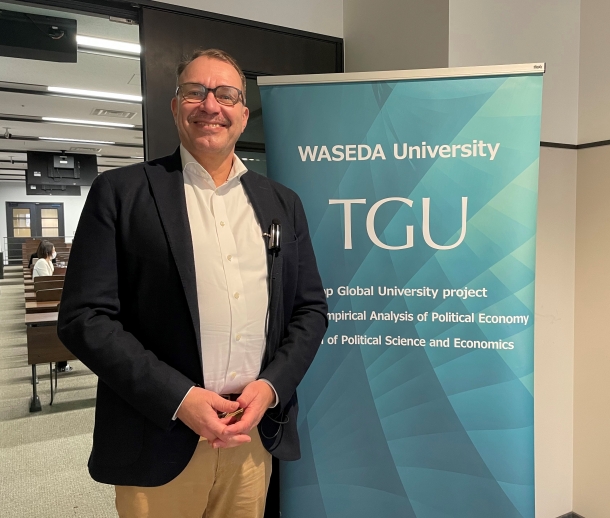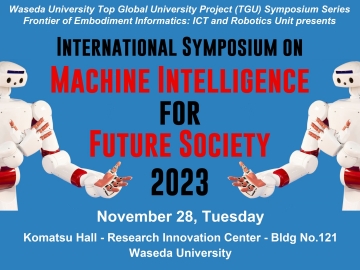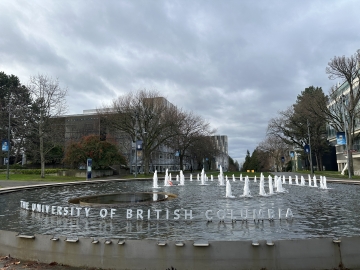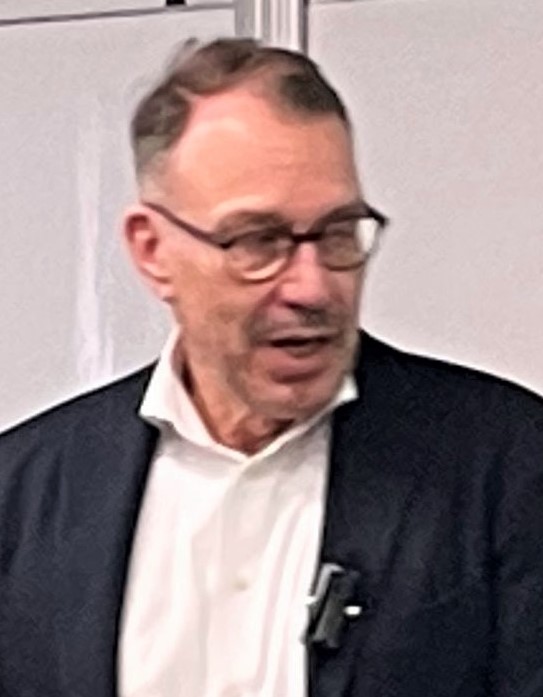
Professor Guido Friebel
On March 6, 2023, The Center for Positive/Empirical Analysis of Political Economy invited Professor Guido Friebel from the Goethe University Frankfurt to give intensive lectures as well as a special seminar on field experiments in companies. Please find the lecture report as below.
Prof. Guido Friebel’s profile
Professor Guido Friebel from Goethe University in Frankfurt, who was invited to give a seminar talk, kindly offered to give an intensive lecture series on field experiments or more formally randomized control trials (RCTs) in companies. In the two-day lectures, he covered the latest research findings on RCTs targeting employees—including his own research on teamwork and referral—and provided his valuable tips for conduct RCTs in collaboration with companies. He demonstrated that carefully designed field experiments are effective in identifying optimal human resource policies that maximize productivity. The lectures attracted more than forty participants, including graduate students and professors from various departments at Waseda University and seven other universities.
Some comments from the participants:
- It was a very interesting lecture. It led me to delve deeper into organizational research, which I had only just begun to explore. I learned a lot about what to be careful about when conducting RCT with companies and I am very satisfied to have learned many things about the behind-the-scenes of RCT that I couldn’t have learned just by reading papers. I hope to apply what I have learned to my future research.
On the first day, Professor Friebel stressed the importance of understanding the needs of collaborating companies and having a theoretical framework for planning RCTs. He said that in order to gain theoretical framework, the students need to read numerous papers extensively.
- The tips for implementing RCT in a company were personally useful. Also, the ideas presented in Professor Friebel’s paper were simple and excellent, and seemed applicable to my research. I learned that understanding what the company is looking for is important when negotiating to conduct RCT. Thank you very much, Professor Friebel.
- I learned two things from the lecture. One is that even simple models can greatly improve the quality of a paper, and the other is that it is very important to study the literature in one’s own field. Thank you very much.
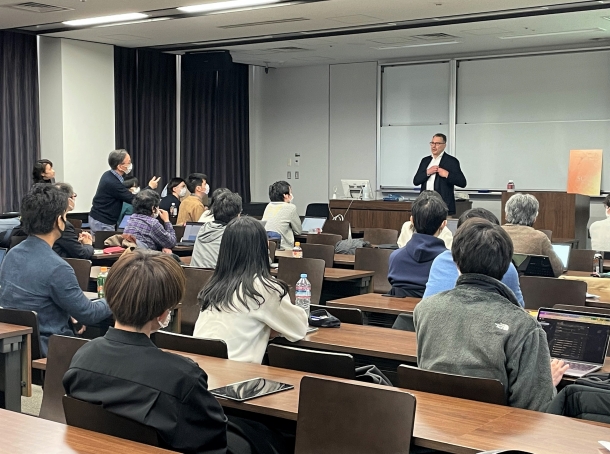
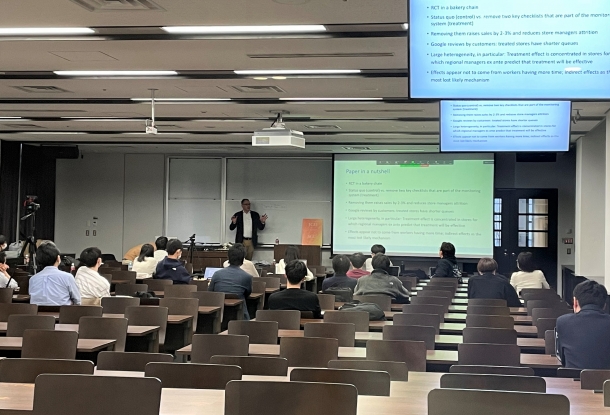
On the second day, Prof. Friebel shared his first-hand experience of collecting time-use information from regional managers in one company and planning an RCT to promote mutual learning among managers based on his finding that active self-organizing behavior is a central element of a “good manager,” which stimulated a lively discussion in the classroom. Although the RCT was not implemented due to a change in top management, Prof. Friebel’s valuable experience was shared with the participants.
- I found the discussion on cutting-edge approaches to the negative effects of long working hours in the latter part of the lecture very interesting.
- It was good to learn about experiments based on actual experience. I learned suggestive and practical lessons for empirical research.
Professor Friebel is a humorous and engaging lecturer who kept us thoroughly entertained. What was surprising about these lectures was that they attracted not only people interested in personnel economics and organizational economics, but also a wide range of people from business school to political science department.
- Although I am a political science major, I learned a lot about measurement, empirical testing, and data interpretation. It was also good to learn about how research is conducted in the field of management science.
- In the reading list for the class I took at the business school, there was a paper by Professor Friebel on team incentives and referrals, and I summarized the paper in my term report. It was very meaningful to have the opportunity to hear explanations and ask questions directly from the author. In addition to the content of the paper, I found the points to keep in mind when designing RCT to be very helpful. I also found the opinions of people from other departments and universities to be very informative.
The lecture clearly motivated many participants to attempt field experiments in the future:
- I was impressed by Professor Friebel’s lecture. I learned a lot about various RCT methods and gained an understanding of the process of conducting RCT between or within companies. Although I have not had the opportunity to conduct RCT before, I would like to try it in the future.
This report was contributed by Takuya Takahashi (1st year doctoral student, Graduate School of Economics) and Hideo Owan (Professor, Faculty of Political Science and Economics)
